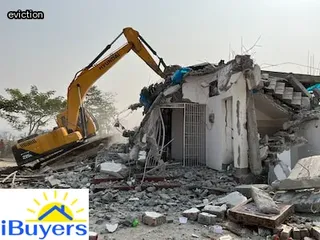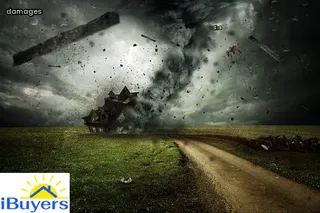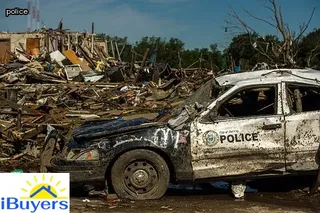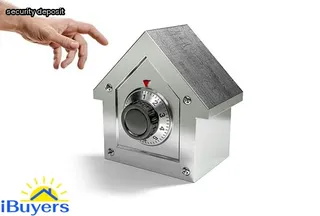As a landlord, it can be incredibly disheartening to discover that your tenants have caused damage to your rental property. Knowing what to do in these situations is essential for protecting your interests and getting the property back in order quickly.
First, take photos or videos of the damage to provide documentation of the situation. This can be used if you need to pursue legal action against the tenants or make an insurance claim.
Next, assess the level of damage and decide whether it should be cleaned up yourself or if you will need to bring in a professional cleaning service. Once you have determined the best course of action, contact responsible tenants and make sure they are aware of their responsibility for covering repair costs.
Finally, be sure to review your lease agreement with tenants so that they understand what is expected when leaving a rental property.

When it comes to repairing damage caused by tenants, the best course of action for landlords is to negotiate a mutually beneficial agreement. Landlords should first assess the extent of the damage and carefully document it with photos or video.
Once an estimate has been made, it is important to discuss the necessary repairs with the tenant, ideally in writing and signed by all parties. After reaching an agreement on how much each party will pay for damages, landlords should keep records of all payments and repairs.
This way, if there are any disputes later down the line, both parties have concrete proof of what was agreed upon. In some cases, a good strategy may be offering tenants a discounted rent rate if they agree to cover their own repair costs.
This can be beneficial for both parties as it ensures that rental units remain up-to-date without putting too much financial burden on either party.
When renting out property, it is important to prepare for the worst in order to avoid any costly or time-consuming disasters. Landlords should create a comprehensive rental agreement that outlines the tenants’ and landlord's responsibilities.
This document should also include clauses that outline what will happen if a tenant fails to pay rent or damages the property. Additionally, it is important for landlords to thoroughly screen potential tenants by conducting background checks and credit checks.
Having detailed records of all interactions with tenants can help landlords protect themselves if a tenant does not follow the terms of the agreement. Finally, having an emergency fund set aside in case any unexpected repairs are needed will help ensure that landlords are prepared for whatever may happen when renting out their property.

When crafting a post-tenant cleanup plan, it is important for landlords to take the necessary steps to ensure that their rental property is restored to its original condition. The best practice for landlords is to start by assessing the damage that has been caused and create an itemized list of all repairs that need to be done.
This list should include both the cost of any repairs and labor costs. Once this list is created, landlords should prioritize the tasks in order of importance and estimate the timeline it will take to complete each task.
Landlords may also want to consider hiring a professional cleaning service or contractor who can help with repairs and restoration. Additionally, landlords should consider taking legal action against tenants if they are found responsible for causing excessive damage or neglecting the property while living there.
Following these best practices when crafting a post-tenant cleanup plan can help landlords get their rental property back up to par quickly and efficiently.
As a landlord, it is important to understand the emotional and legal responsibilities that come with dealing with tenants who have left your rental property in disarray. It is essential to remember that emotions can run high when dealing with a situation like this, and as the landlord, it is important to remain professional and take an appropriate course of action.
First, landlords must assess the damage done to the property in order to determine if any legal action needs to be taken. Depending on the extent of damage, this could mean taking civil court action or filing for a small claims case against the tenant.
Landlords should also consider their local laws related to tenant-landlord disputes and tenant rights as they may affect their ability to pursue certain courses of action. Additionally, landlords should consider whether or not the damage done was intentional or accidental, as this could influence how they approach resolving the issue with their tenants.
Lastly, landlords must take steps to ensure that their rental property is safe for future tenants by making necessary repairs or improvements. When faced with an unruly tenant situation, landlords must remain composed while carefully navigating through both emotional and legal responsibilities associated with maintaining a successful rental property.

Eviction is a serious consequence that landlords may need to consider if their tenants are destroying property. However, evicting a tenant can be an intimidating process with both pros and cons.
On the one hand, evictions provide a swift and decisive solution to the problem of property damage, as it removes the tenant from the rental unit almost immediately and allows the landlord to begin repairs. On the other hand, eviction is expensive and time-consuming; in some cases, landlords may need to hire attorneys and go through lengthy court proceedings.
Additionally, an eviction could also negatively affect a tenant's future prospects for finding housing in their area. While eviction may be unavoidable in some circumstances, it's important for landlords to carefully weigh their options before deciding on this course of action.
Being a landlord is a great way to make rental income, but unfortunately it can come with its own set of problems. One of the most common issues landlords face is tenants damaging their property.
As a landlord, it's important to understand your rights in the event that this happens to you. In most cases, landlords are allowed to hold tenants responsible for the damage they cause; they may also be able to terminate the lease agreement if necessary.
To protect yourself as a landlord and ensure that you receive fair compensation for tenant damage, it's essential to know what steps you can take and when you should take them. Additionally, developing an understanding of applicable laws and regulations can help give you an advantage in any dispute that may arise from tenant damage.
Knowing how to handle tenant damage before it occurs will help ensure that your rental property remains protected moving forward.

An informal property inspection request is an important tool for landlords to use when tenants have trashed their rental property. This type of request allows the landlord to inspect the home without making an appointment with the tenant, as long as it is done during normal business hours and in accordance with state and local laws.
The informal inspection request should include a description of what needs to be inspected and why, such as if there are signs of damage or misuse of the property. Additionally, landlords should make sure that tenants know they have the right to refuse entry if it does not meet their expectations for privacy and security.
By using this simple yet effective approach, landlords can quickly assess any damage that has occurred and ensure that tenants are held responsible for any repairs or replacements necessary due to their actions.
As a landlord, it can be incredibly frustrating when tenants damage your rental property and leave behind a mess. Documenting the damages, repairs, and other pertinent details is essential for getting your money back and protecting yourself legally.
To start, take pictures and videos of any existing damages prior to the tenant’s move-in date. This will help establish a baseline of what was there before they took occupancy.
Then, during the tenant’s stay create an inventory list that contains all existing items in the premises such as furniture or appliances. This will make it easier to determine if anything is missing or damaged after they move out.
Once the tenant moves out, inspect each room thoroughly for any signs of damage or vandalism. Take note of any repairs that need to be done as well as any items that have been removed without permission from the property.
Finally, speak with the tenant to get their version of events regarding any damages and keep records of this conversation for future reference if needed. By following these steps you should be able to properly document tenant damages and take appropriate legal action when necessary.

When tenants damage rental properties, it is a landlord's responsibility to assess and address the situation. The most important thing for landlords to do is act quickly and decisively. Landlords should document all the damage and take photos of each room.
This visual evidence can be used in court if needed. It is also important to properly document any communication with the tenant regarding the damage. Landlords should make sure they understand their local laws and regulations, such as rules regarding eviction proceedings or how much of a security deposit can be kept in order to cover the costs of repairing the property.
Once a thorough assessment has been made, landlords should decide whether they will repair or replace damaged items. If repairs are necessary, it’s best for landlords to hire professionals who specialize in tenant-caused damages so that they can get the job done correctly and efficiently. Landlords must also factor in associated costs like labor, parts, materials, etc.
, when determining how much money needs to be spent on repairs. Finally, it may be necessary for landlords to increase security measures such as additional locks or cameras to prevent further damage from occurring in the future.
When tenants trash a rental property, it can be an incredibly stressful situation for landlords. Unfortunately, resolving tenant damage disputes can be even more complicated.
In order to successfully resolve these issues, landlords must take the right steps to protect their rights and interests. One of the most important techniques for successful resolution is communication.
Landlords should always begin by talking with tenants about the issue and attempting to come to a mutually satisfactory agreement. If this fails, landlords should look into mediation or arbitration services that are offered in their area.
These services allow both parties to work together towards a resolution without involving court proceedings. Additionally, landlords may need to provide evidence of damages in certain cases, such as pictures and receipts for repairs.
Whatever course of action is taken, landlords must remain patient and calm throughout the process in order to prevent any further conflict with tenants.

As a landlord, managing the costs of tenant repair work is an important part of maintaining rental property. When tenants damage or destroy your property, it can be costly to repair.
To help keep costs down, there are some tips and tricks you can use to manage the costs of repair work without sacrificing quality. One way to reduce expenses is to consider doing some of the repairs yourself.
With the right tools and a bit of know-how, you can often repair minor damage quickly and easily, saving money in the long run. Another option for minimizing expenses is to shop around for materials and services.
You may be able to find better deals if you compare prices between multiple providers. Finally, it's always a good idea to regularly inspect your rental property for any signs of damage that could require repair in the future.
By keeping an eye out for potential problems early on, you'll save yourself from potentially expensive repair bills down the line.
When a tenant damages your rental property, the costs of repair can be considerable. Fortunately, you may be able to recover some or all of these expenses from your insurance policy.
Most landlords are protected by either an owner's policy or a landlord's policy. These policies typically cover both incidents of vandalism and natural disasters that cause damage.
Depending on the specifics of your policy, you might be able to claim for the cost of repairs, replacement of damaged items and even lost rent if the tenants caused extensive damage which resulted in them having to vacate the property before their lease term was up. You should review your coverage with your insurance provider to understand what you are entitled to and how best to proceed in order to make a successful claim.
Although it is not possible for insurance to completely erase the disruption caused by tenants trashing your rental property, it can go some way toward helping to recover financial losses caused by tenant damages.

Investing in rental properties can be an excellent way to increase income and build wealth, but it is important to consider the risks involved. The most successful landlords understand that the success of their business depends on choosing the right property and managing it responsibly.
Before investing in a rental property, potential landlords should evaluate the local real estate market, research local laws and regulations, create a budget for operating expenses, determine how much rent they will charge for their units, and decide how much time and effort they can spend on upkeep and tenant management. Additionally, landlords should look into insurance coverage to protect themselves from any legal or financial liabilities associated with owning a rental property.
Taking these precautions before investing in rental properties will help ensure that landlords are properly prepared to deal with any issues that may arise during the course of their business.
When tenants take their destructive behavior to the extreme and cause significant damage to a rental property, landlords may find themselves wondering whether they should take legal action against the tenant. While every case is unique, there are some general guidelines that landlords should consider when making this decision.
First and foremost, landlords should understand the severity of the damage caused and any potential financial losses associated with it. If repairs are extensive or expensive to remedy, then seeking legal action might be necessary for landlords to recoup those costs.
Additionally, if a tenant has violated their lease agreement in some way that can be proven, then this could provide a strong basis for pursuing legal action. Furthermore, if there is evidence of malicious intent on the part of the tenant, such as purposely destroying property in an effort to make an example out of the landlord or gain leverage in a dispute, then taking them to court might be an appropriate response.
Ultimately though, each landlord must balance all of these factors carefully before deciding how best to proceed with problem tenants.

As a landlord, it is important to understand the laws relating to rental properties and damages in your state. Taking the time to familiarize yourself with these laws can help you minimize risk when it comes to tenants trashing your rental property.
For example, you may need to understand what is considered normal wear and tear versus intentional damage or negligence. Additionally, you should be aware of your rights and responsibilities as a landlord when it comes to tenant damage, eviction, repairs and other issues.
Knowing the law can also help you determine how much of the damage is covered by security deposits and when a tenant may be held liable for any additional costs. Furthermore, many states have specific rules surrounding how much notice must be given before entering a rental unit as well as what type of notice must be provided if an eviction is necessary.
Understanding these rules can help protect both you and your tenants in case of disputes or disagreements.
Finding quality contractors or vendors for repair services after a tenant leaves can be a challenge for landlords. It is important to research the local market and find reliable professionals who can provide quality services at reasonable rates.
Word of mouth from other landlords, neighbors, or friends is one of the best ways to locate contractors. Additionally, websites such as Angie's List or Yelp! may provide reviews on various contractors in the area.
Once you have identified potential candidates for your repairs, it is important to get quotes from each contractor and compare prices before making a selection. Ask for references from their past customers and check to see if they are bonded and insured as well.
Taking the time to evaluate all these factors will help ensure that you get quality repair services at a fair price.

As a landlord, it is important to consider the best option for post-tenant cleanup: DIY or professional. Doing a DIY clean up can be cost effective and may be feasible if the damage is not too extensive.
However, if the property has been severely damaged and needs a full renovation, it may be more beneficial to hire professionals for all stages of the clean up process. Depending on the extent of damage, you should also factor in the additional costs associated with professional help such as labour and materials.
If you are considering taking on a DIY project, it is essential that you have an understanding of local laws and regulations as well as access to adequate supplies such as cleaning products and tools. Finally, having an emergency fund set aside for unexpected expenses related to post-tenant cleanup can help take some of the stress out of dealing with damaged rental properties.
If tenants damage your rental property, it's important to act quickly. Start by taking photos of the damage and documenting what happened in detail.
Following that, contact the tenant in writing and inform them of the violation of their lease agreement. Depending on the extent of the damage, you may need to take legal action beyond simply sending a notice.
If necessary, consult with a lawyer to determine your rights as a landlord. In some cases, depending on the state laws and regulations, you may be able to deduct repair costs from the security deposit or collect damages through small claims court.
It is also important to document your actions each step of the way before, during and after any repairs are made so that you have evidence should legal action need to be taken against them.

Tenants are responsible for any damages caused to a rental property beyond normal wear and tear.
This includes things like holes in walls, broken windows, damaged flooring, stained carpets, broken appliances or furniture, and damage to the exterior of the property.
Landlords can expect tenants to take appropriate care of their rental units and be held accountable for any damage that is caused by their negligence or improper use.
If a tenant causes more than normal wear and tear to the property, it is important for landlords to document the damage so they can be properly compensated when the tenant vacates the unit.
When landlords find themselves dealing with a tenant that is trashing their rental property, it is important to take action right away. The first step is to review your lease agreement and make sure that the tenant is in violation of any of the terms.
If they are, you can use this as leverage when bringing up the issue with them. Make sure to document all damage done by the tenant and take pictures if possible.
This will be helpful should legal action be necessary in the future. After gathering evidence, contact the tenant and have an open discussion about what needs to occur for them to rectify their violations.
If they fail to do so, you may need to pursue eviction proceedings or seek legal advice from an attorney. Always remain professional during these interactions and be sure not to violate any laws yourself in the process.
A: The evicted renter may be held liable for any damage done to the property, depending on the terms of the lease or rental agreement. The landlord may pursue legal action against the tenant, such as filing an eviction notice or seeking reimbursement from the insurance company.
A: The Property Manager should contact their local Police Department to report any damages or losses.
A: If a tenant trashes the house, the landlord can pursue legal action, such as filing an eviction notice. The landlord may also be able to collect damages from the tenant in some cases.
A: Yes, in some cases landlords can file a lawsuit against their tenants if they find that they have left their house in an unacceptable condition. Before taking any legal action, it is important for the landlord to consult local laws and regulations and contact the tenant via email or other means to discuss the issue. If no agreement can be reached, then the landlord may consider filing a suit in court.
A: Tenants who trash their house may face eviction and/or be held legally responsible for damages or cleaning costs.
A: The tenant may be liable for restitution to the landlord for any damages caused by their neglect.
A: The tenant should immediately report the damage to the landlord or property manager and take pictures of the damage for evidence. The tenant may also be responsible for paying for any necessary repairs due to the damage.
A: Landlords should submit an invoice to the tenants for damages caused by trashing of the house. The tenant is responsible for all costs associated with repairs or cleaning, and must pay the invoice in full within a reasonable amount of time.
A: Tenants are responsible for leaving the rental property in the same condition it was in when they moved in, minus normal wear and tear. If tenants leave the property in an excessively trashed condition, they may be liable for the cost of any repairs needed to restore the property back to its original condition.
A: A landlord should clean up the damage, document everything, and repair the damage. Additionally, they should enforce the lease terms to ensure that this does not occur again in the future.
A: The tenant may be held liable for damages caused and may be required to pay for any repairs or cleaning needed.